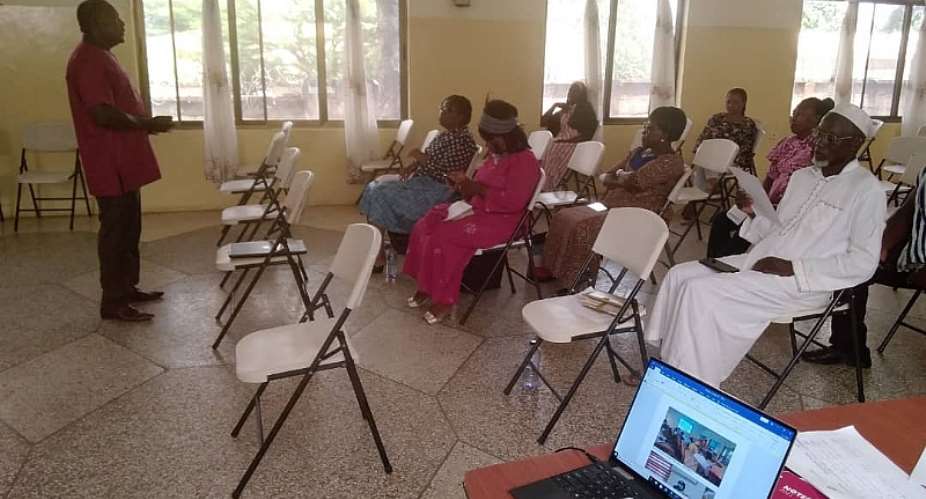An engagement meeting has been held for key stakeholders on the challenges being encountered by girls, who have returned to school or want to go back to school in line with the government’s Back to School Policy.
It sought to ensure that challenges being encountered as a result of the implementation of the Back to School Policy could be addressed to ensure that many more girls returned to school irrespective of their conditions be it pregnant, teenage mothers, and or drop-out.
The meeting, held in Tamale, was organised by the Centre for Active Learning and Integrated Development (CALID) in collaboration with the Queen Mothers Association of Northern and Savannah Regions with funding support from OXFAM.
It formed part of the Education for Active Citizens project, which seeks to ensure young women-focused campaign on sexual and reproductive health rights, equal education rights and employment opportunities at the local and national levels resulting in policy/practice changes benefiting increased number of marginalised youth, particularly female youth in the country.
Participants included representatives from Ghana Education Service (GES), Ghana Health Service, some senior high schools, Queen Mothers Association, traditional authorities, civil society organisations, and the media from the Northern and Savannah Regions.
The government, through GES, has been implementing the Back to School Policy, which seeks to prevent pregnancy amongst school girls, and if the pregnancy occurs, they are supported to go back to school.
While about 100,000 girls get pregnant every year, only about 3,000 go back to school.
Challenges such as unsustainable funding, inadequate staffing, inadequate support from parents for child care, discrimination in the form of mockery from other students, inadequate and inappropriate facilities at schools for pregnant and teenage mothers amongst others have been identified as reasons most girls are not willing to return to school after getting pregnant or dropping out of school.
Madam Rosina Zenabu Abdul-Rahman, Girl-Child Education Officer at the Sagnarigu Municipality expressed need for government to assign a health care officer to each school to ensure adequate support and care for pregnant and or teenage mothers, who returned to school.
She said pregnant and or teenage mothers could require emergency care anytime, which teachers could not provide hence the call saying this would encourage such girls to return to school.
She also expressed need for funding to support staff of the GES to go to communities to create awareness on the Back to School Policy to encourage them to send their daughters back to school in case they dropped out due to pregnancy and or child birth.
Other participants argued that the Free Senior High School initiative did not make provision for students, who dropped out for some time and wanted to return, appealing to government to come out with a special budget to cater for such students, which would encourage them to return to school.
Mr Mohammed Awal Sumani Bapio, Executive Director of CALID, said while all stakeholders had roles to play parents needed to do more to ensure girls returned to school.
He expressed need for government to put in place strategies to enable girls to return to school saying "It is not enough to say go back to school when the environment is not conducive for them."






 Meta releases new version of conversational AI across its platforms
Meta releases new version of conversational AI across its platforms
 Cape Town named Africa’s Best Airport 2024 by Skytrax
Cape Town named Africa’s Best Airport 2024 by Skytrax
 Bono East: Four injured after hearse transporting corpse crashes into a truck
Bono East: Four injured after hearse transporting corpse crashes into a truck
 ‘Be courageous, find your voice to defend our democracy’ — Sam Jonah urges journ...
‘Be courageous, find your voice to defend our democracy’ — Sam Jonah urges journ...
 Exodus of doctors, nurses and teachers have worsened because of unserious Akufo-...
Exodus of doctors, nurses and teachers have worsened because of unserious Akufo-...
 2024 election: Avoid insults, cutting down people in search of power – National ...
2024 election: Avoid insults, cutting down people in search of power – National ...
 ‘You passed through the back door but congratulations’ — Atubiga on Prof Jane Na...
‘You passed through the back door but congratulations’ — Atubiga on Prof Jane Na...
 Government’s $21.1 billion added to the stock of public debt has been spent judi...
Government’s $21.1 billion added to the stock of public debt has been spent judi...
 Akufo-Addo will soon relocate Mahama’s Ridge Hospital to Kumasi for recommission...
Akufo-Addo will soon relocate Mahama’s Ridge Hospital to Kumasi for recommission...
 We must not compromise on our defence of national interest; this is the time to ...
We must not compromise on our defence of national interest; this is the time to ...
